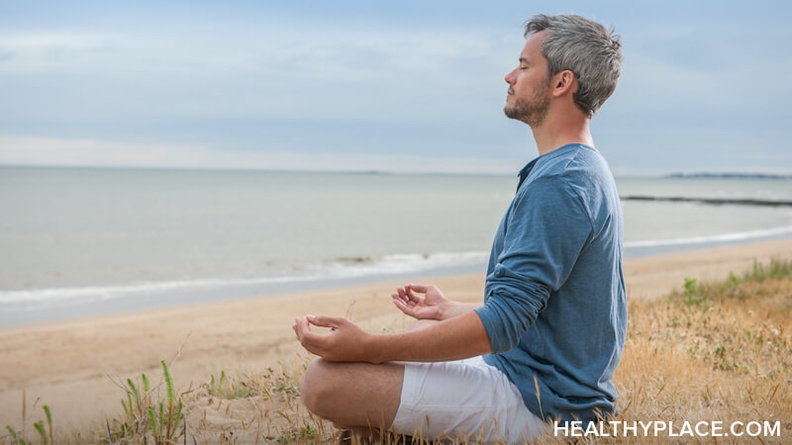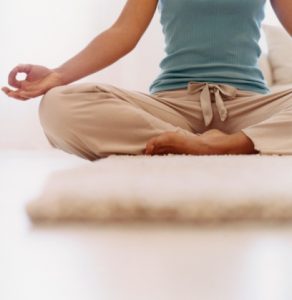Mindfulness Can Increase Self-Confidence

Say adios to autopilot. This mindset has not been serving you on your path to building self-esteem and working to increase self-confidence. If you have been living with the same thought process, day in and day out, it can be difficult to break out of your comfort zone into new ideas or new tools to enhance your life. When one becomes mindful of their thoughts and feelings, they build awareness and can slowly start trusting what their brain and body really need.
You may be thinking, how can I listen or even trust my thoughts? This is completely normal and, at first, sounds impossible; it’s takes practice. As we grow to hear our thoughts, without judgment and recognize the ones that are not serving us, we can begin to trust ourselves more. Mindfulness tools are scientifically proven to calm down your mind and slow down habitual thinking patterns, those that often lead to insecure, negative thoughts or contribute to low self-esteem.
Being Mindful To Increase Self-Confidence
 Anne lives in fear that she has done something wrong. She constantly feels like others are mad at her and feels responsible when others are having a bad day. She blames herself. "What could I have done better?" is a frequent question in her mind. If a friend doesn’t email her back or she is texting with someone and there is a long pause between responses, she feels anxious and out of control. Lacking self-confidence, and distrusting of her decisions, she feels that she is to blame (Depression Makes Social Interaction Stressful). This leads her to go on autopilot and spiral into a sad mood and withdrawn behaviors.
Anne lives in fear that she has done something wrong. She constantly feels like others are mad at her and feels responsible when others are having a bad day. She blames herself. "What could I have done better?" is a frequent question in her mind. If a friend doesn’t email her back or she is texting with someone and there is a long pause between responses, she feels anxious and out of control. Lacking self-confidence, and distrusting of her decisions, she feels that she is to blame (Depression Makes Social Interaction Stressful). This leads her to go on autopilot and spiral into a sad mood and withdrawn behaviors.
When Anne can learn how to briefly pause through mindfulness training, these negative thought streams will diminish and self-confidence and self-esteem will grow. Mindfulness training allows us to encompass each experience as it is without judgment or prejudice. It’s a process and eventually we see, experience, or explore something that we don’t like without adding additional negative thoughts or conditioned behaviors.
Mindfulness Practice for Self-Confidence
Mindfulness is something we rarely do when we are on autopilot. We are constantly focusing on “what’s next” or what happened in the past, which leads to little awareness about what we need in the now. Adding in small doses of mindfulness is an awesome tool to get us in a calmer state of mind. It’s a way of paying attention to whatever is happening in our lives, which brings us more control. When we slow down, we actually make better decisions and feel more confident in our choices.
This doesn’t mean you have to hit the yoga mat. Rather, mindfulness can be a quick tool that brings us into the here and now. It allows us to recognize the moment and step away from habitual, often unconscious emotional and physiological reactions to everyday events. It will not eliminate life's pressures but, with practice, it can help us respond to them in a calmer manner that benefits our mind and body.
How To Practice Mindfulness
• Notice the experience, sight, smell, taste, hear, feel
• Allow yourself to focus on your breathing and/or the experience fully
• Allow thoughts to come up, avoid judging them, just refocus as you can
• Attempt to allow yourself to fully engage in the experience
• Stay focused on the moment and the experience
• Try to let go of any negative thoughts about yourself or the experience
 Anne found that by doing a body scan several times during the day, becoming aware of any muscle tension was a good start. Many judgments would arise, you should …or get back to work thoughts, but she slowly let them pass. After some time, she began to incorporate mindfulness into her commute to work and listening to a guided mediation before bed. She was becoming more aware and more confident in her body and thoughts. When she was able to develop some mindfulness skills, the times that her insecurity would take over in the past, now became less intense. She recognized these were habitual thoughts rather than truths. She could let them pass without disrupting her day.
Anne found that by doing a body scan several times during the day, becoming aware of any muscle tension was a good start. Many judgments would arise, you should …or get back to work thoughts, but she slowly let them pass. After some time, she began to incorporate mindfulness into her commute to work and listening to a guided mediation before bed. She was becoming more aware and more confident in her body and thoughts. When she was able to develop some mindfulness skills, the times that her insecurity would take over in the past, now became less intense. She recognized these were habitual thoughts rather than truths. She could let them pass without disrupting her day.
Here are some more mindfulness techniques to work into your day. You'll soon see improved self-confidence and self-trust.
1. Walking with the senses: notice where you are the temperature, the scents, what is around you, what is unique about the situation, the colors, the people, and focus on what is happening in the moment.
2. On your way to work, listen to music and try to focus on one instrument or voice for the entire song. Notice how this changes your experience.
3. Try a guided mediation; you can search Podcasts or YouTube for quick guided meditations. This helps you get in touch with your body. Do these during break at work or anytime your needing to get centered.
4. Eat with your senses. In autopilot we tend to rush with everything, inhaling food at our desk or in front of the TV. Instead, pay attention to each bite, the texture, tastes and feelings that come up. You are likely to enjoy it more and even eat less.
5. In your head, play a game, think of every food item that starts with H or all the cities that end in E. Focus on this for a few minutes and see if the thoughts you had before are as strong.
Take Good Care.
Emily is the author of Express Yourself: A Teen Girls Guide to Speaking Up and Being Who You Are.You can visit Emily’s Guidance Girl website. You can also find her on Facebook, Google+ and Twitter.
APA Reference
Roberts, E.
(2013, March 13). Mindfulness Can Increase Self-Confidence, HealthyPlace. Retrieved
on 2026, March 1 from https://www.healthyplace.com/blogs/buildingselfesteem/2013/03/how-mindfulness-can-increase-self-confidence
Author: Emily Roberts MA, LPC
[…] mindfulness or connect with a spiritual practice that vibes with […]
Here's an excellent exercise that I use to develop inner peace, mental balance and healthy self-esteem. It works because healthy self-esteem is a result of both brain hemispheres working together in harmony. I think you'll find it interesting. https://www.youtube.com/watch?v=Hzk0AlxJ-IM
In any case this paper indicate substantial tool to manage in successful way common life difficulties as principal cause of mental disorders. On the other hand, through your useful recommendations, we become aware of reality, which one is different of our instant recognition about daily events and circumstances as well. Of course these thoughts instruction serve as guidelines to control emotional reaction over stressful situations. In a word, mindfulness manner helps us to deal against life misunderstandings everywhere and in any time. As a conclusion of my comment,let be the veracity that mindfulness enhance our adaptability to personal, professional and social functionality. With these prerequisites, we would enhance our self-confidence as crucial precondition of good emotional state.
This article is so true! If we stop and take time to smell the roses, we have a greater appreciation for life and things go smoother. Please provide us more great tips like this article. Awesome!
It is prudent to add a 6th item to your list :
6. Be mindful of your emotional reactions.
If you pause before engaging with them, you can often find them not to serve you well. The pause provides time for your conscious mind to be aware of the emotion rising and see if it is justified and appropriate.
Not only will you start to reframe inappropriate reactions (she was correct to say my hair was a mess, and there was no need to take umbrage), but also start to be aware that they often do not server you well.
By disengaging with some emotions through mindfulness of them, you can reduce their prevalence. So you will gradually see your temper less likely to kick in, for example. You will also see how much your ego keeps fighting for unreasonable deals that your rational mind would reject if it got chance to intervene in time.
